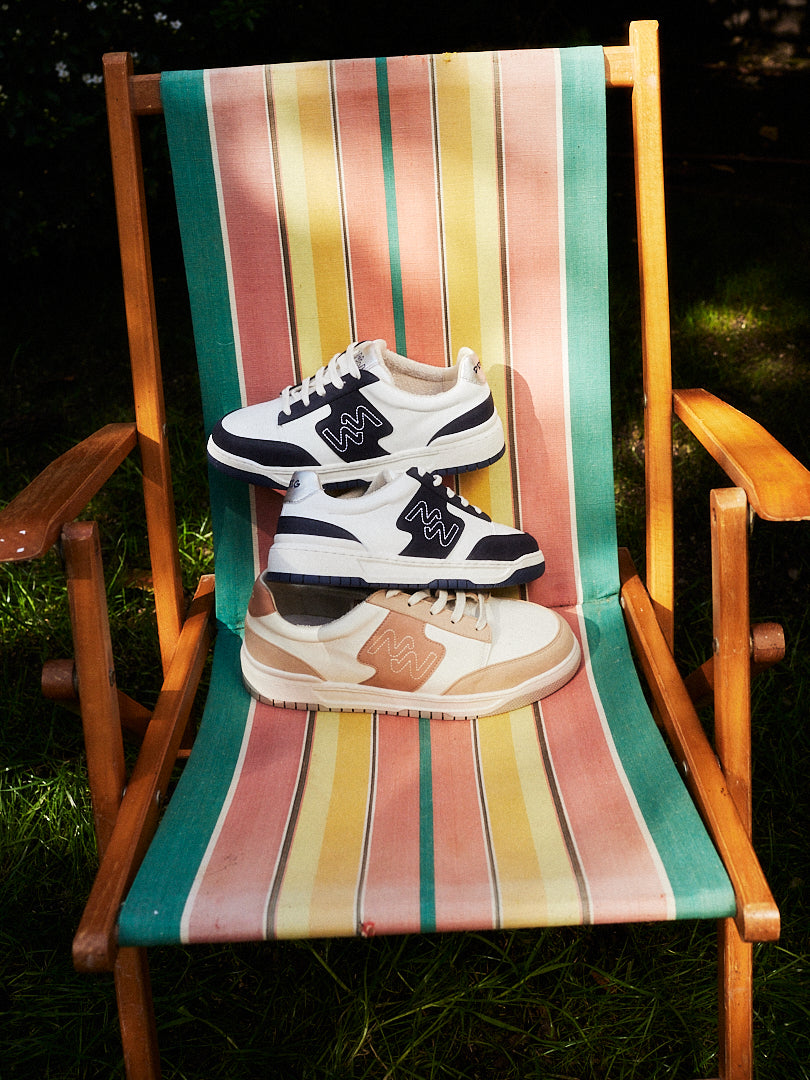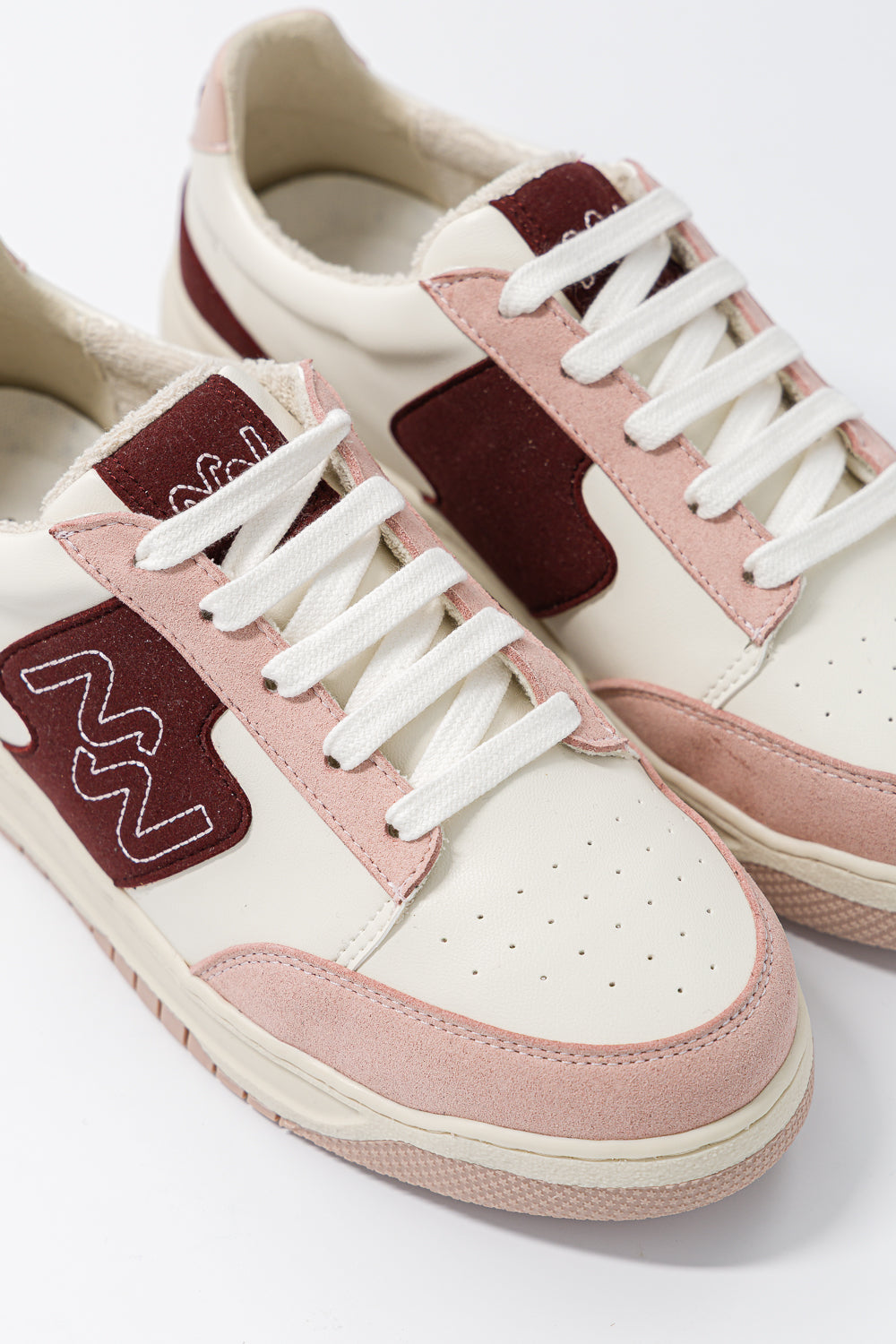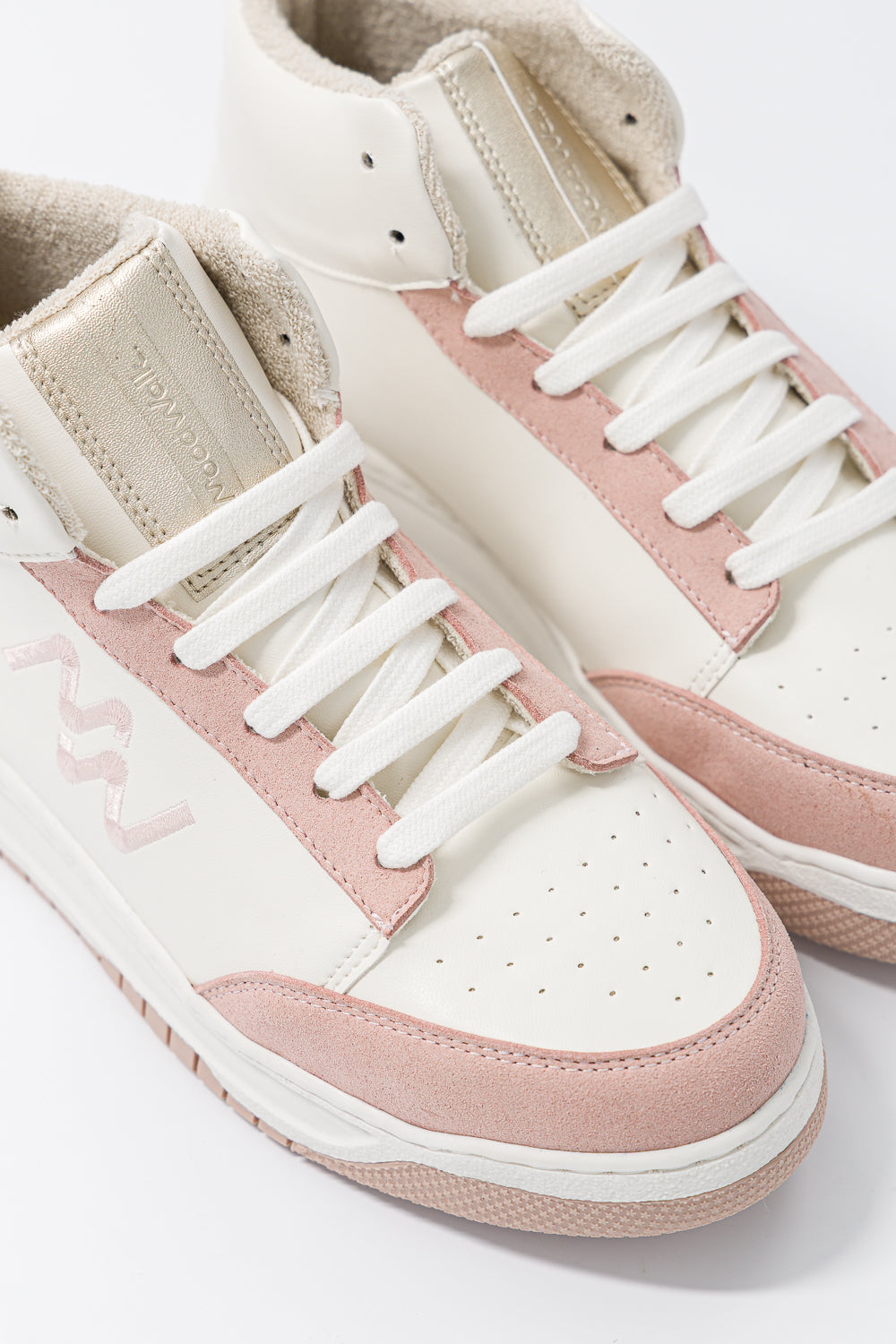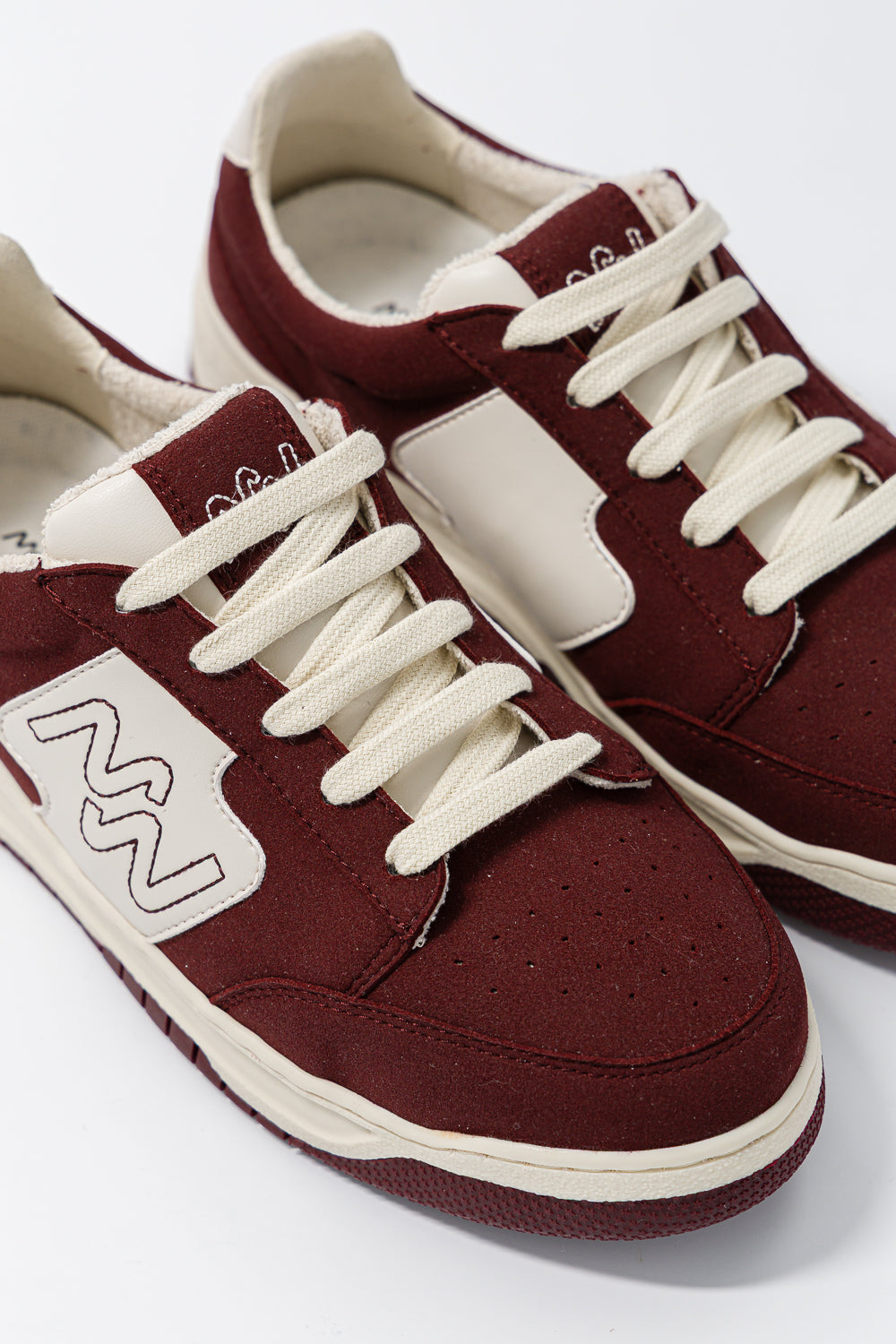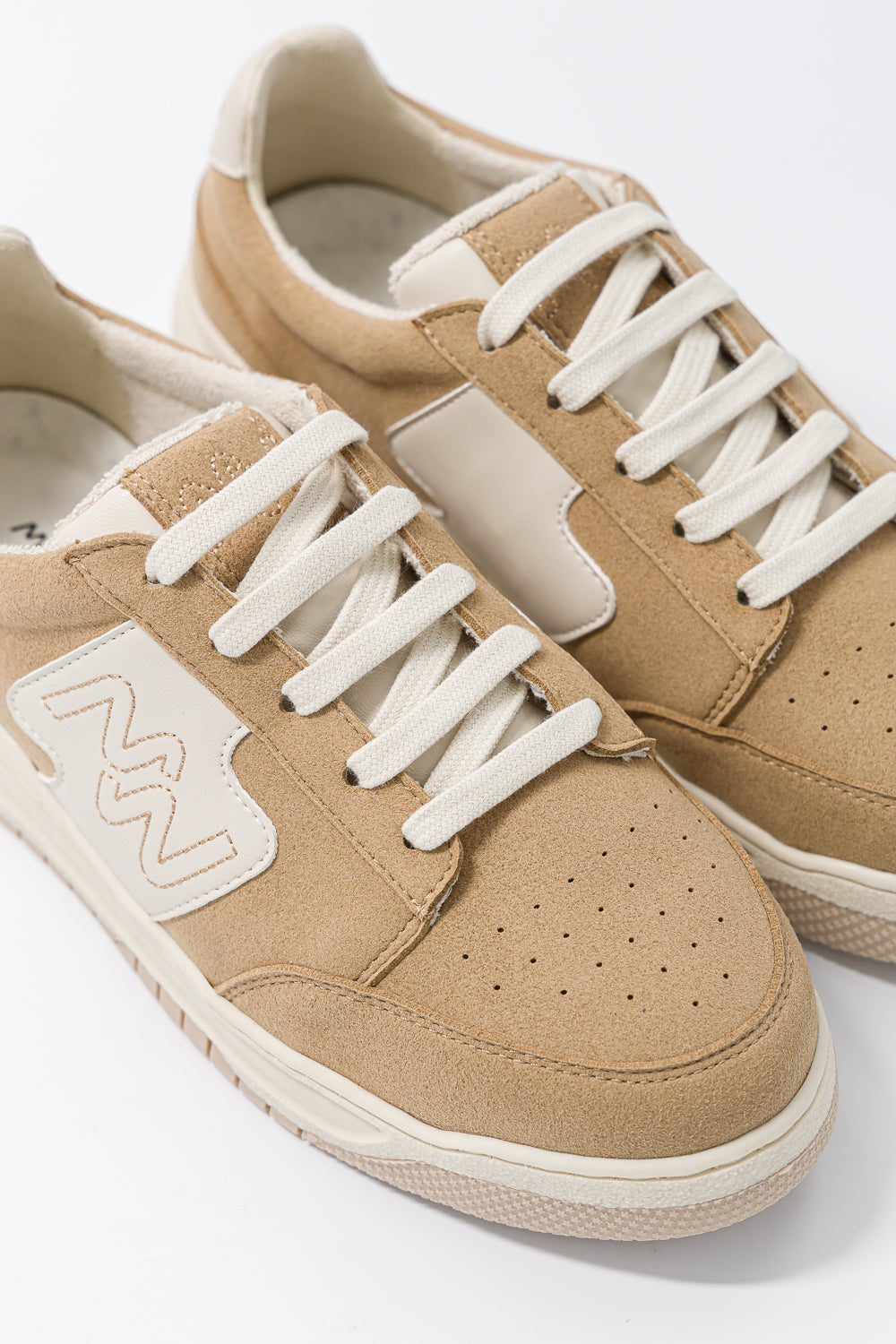Portugal, the land of choice for vegan sneakers
In recent years, vegan sneakers have found fertile ground for growth in Portugal. This small country with a wealth of expertise has established itself as one of the nerve centers of responsible shoe production in Europe. But why do so many ethical brands choose to set up their production there?
Historic know-how in footwear
Portugal is recognized as one of the most renowned shoemaking countries in Europe. For centuries, artisanal skills have been passed down from generation to generation. Small towns like Felgueiras and São João da Madeira have become true shoemaking capitals, where every gesture, every finish is the result of patiently acquired mastery.
Originally focused on leather, this craft has gradually adapted to market developments. Today, Portuguese artisans know how to work with innovative materials, including vegan ones, without sacrificing manufacturing rigor. “Corn leather,” recycled microfibers, textiles made from post-consumer waste: these alternative materials require precise techniques, which Portuguese workshops have masterfully integrated.
This blend of tradition and modernity is evident in every pair of sneakers: solid stitching, meticulous assembly, and impeccable finishing. The workshops, often small or family-run, prioritize quality over quantity. The result: shoes designed to last, with a bold style and a true environmental conscience.
This is the choice we made at Mood Walk by opting for a family workshop located in Vizela, north of Porto, which carefully and ethically manufactures our vegan sneakers made from bio-sourced plant materials and recycled materials sourced in Portugal, Spain and Italy, or in nearby countries.

A growing commitment to sustainable fashion
Portugal isn't just known for the quality of its products. It's also a leader in ethical and responsible manufacturing. For several years, the country has implemented strict standards for environmental protection and working conditions. This rigor naturally attracts brands that care about consistency between their commitments and their production chain.
Many of the vegan brands' partner workshops hold eco-responsible certifications: ISO 14001 for environmental management, OEKO-TEX for the absence of toxic substances, and GRS for the use of recycled materials. This guarantees environmentally friendly practices at all levels: reduced water consumption, optimized waste management, and the use of cleaner energy.
Materials are often sourced locally or from nearby countries to limit their carbon footprint. Some factories go even further, reusing scrap materials to create accessories or soles, in an effort to achieve zero waste. Portugal therefore embodies modern, conscious, and committed production, perfectly aligned with the values of the vegan movement.
Why is this choice strategic for European brands?
Close and transparent production
Producing in Portugal means choosing geographical and relational proximity. For a European brand, this allows for more agile production management: exchanges are faster, prototypes are easier to track, and adjustments are simpler to implement. We gain in fluidity, responsiveness, and above all, transparency.
This proximity also has a significant environmental impact. Less transportation means fewer CO₂ emissions. At a time when consumers are demanding concrete commitments, this aspect is essential. Producing a product a few hundred or thousands of kilometers away, rather than halfway around the world, significantly reduces its overall carbon footprint.
Finally, it builds customer confidence. When a product is stamped “Made in Portugal,” it inspires a certain assurance: that of traceability, compliance with European standards, and consistency with the brand’s ethical commitments. Conversely, a product “designed in Europe but manufactured in Asia” often raises more doubts than enthusiasm.

Respectful working conditions
Another major advantage of Portuguese manufacturing lies in its adherence to social standards. Unlike some countries where transparency reigns, Portuguese factories are required to adhere to strict labor rights regulations: decent wages, regulated working hours, workplace safety, social security coverage, and more.
The artisans work in humane conditions, in safe environments, often in direct contact with the brand founders. These relationships of trust foster true collaboration, based on mutual respect and a passion for the craft.
For a vegan brand, this dimension is crucial. Ethics isn't just about excluding animal materials: it also applies to humans. By choosing Portuguese partners, brands ensure that their social commitments are truly implemented, from the design to the shoebox.
It's no coincidence that so many vegan sneakers are now made in Portugal. This choice embodies a virtuous production model, where artisanal tradition, responsible innovation, social ethics, and quality standards intersect.
For brands and consumers alike, Portugal is a credible and inspiring alternative to the globalized fast-fashion model.
Opting for vegan sneakers made in Portugal means choosing a fairer, more sustainable fashion that's closer to our values. Another step toward conscious and responsible consumption without ever compromising on style.





